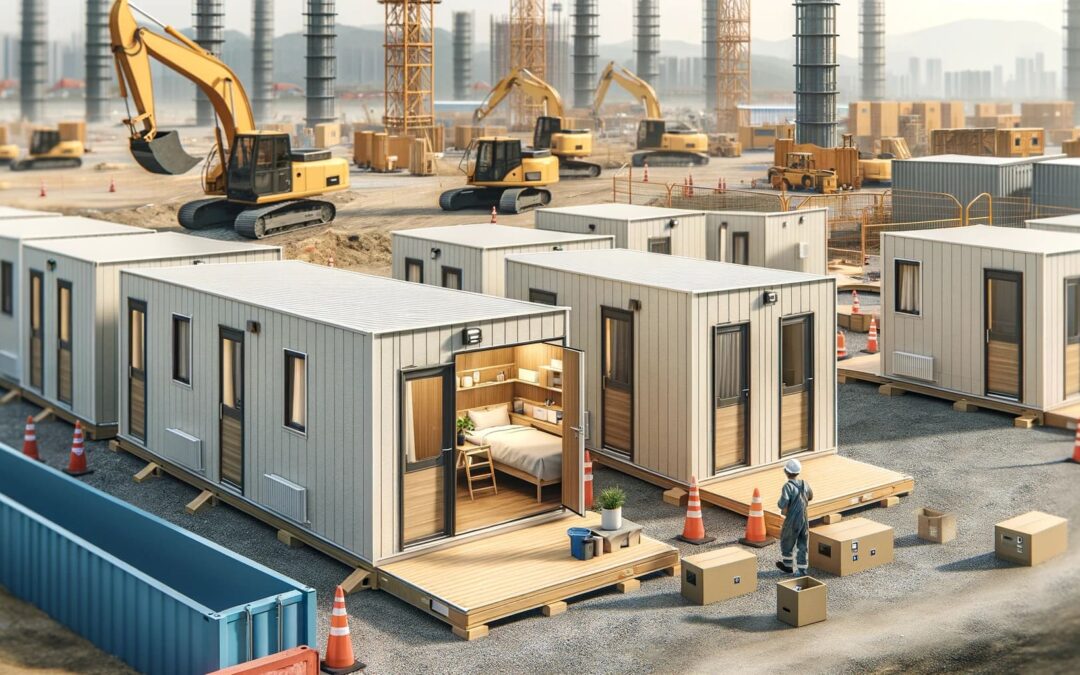Efficiency, flexibility, and cost-effectiveness are key factors that contribute to the success of a construction project. One solution that addresses these needs while also offering numerous other benefits is portable accommodation. This type of temporary housing is proving to be indispensable on construction sites for various reasons, from logistical efficiency to improved worker welfare.
Enhanced Productivity and Worker Satisfaction
One of the primary advantages of portable accommodation is the significant boost it provides to productivity. Workers have access to comfortable, on-site living quarters, reducing the time and energy spent on daily commutes. This convenience allows workers to start their days refreshed and focused, leading to higher efficiency and output.
Moreover, the proximity of portable accommodation to the worksite can lead to increased worker satisfaction. The comfort and convenience of modern, well-equipped units can greatly improve living standards for workers, which in turn, can boost morale and reduce turnover rates.
Cost-Effectiveness and Financial Savings
Portable accommodation offers considerable cost savings compared to traditional options such as hotels or rented apartments, especially in remote areas where such facilities might be scarce or expensive. By housing workers on-site, companies can significantly reduce expenses associated with travel allowances, per diems, and extended commuting times.
Flexibility and Scalability
The modular design of portable accommodation units allows for a high degree of flexibility. They can be easily configured to meet the unique demands of each project, whether that involves single sleeper units, communal living spaces, or office and recreational areas.
Additionally, as the scope of the project changes, the accommodation can scale up or down accordingly. This adaptability makes portable accommodation ideal for projects of varying sizes and durations.
Reduced Environmental Impact
Portable accommodation also offers environmental benefits. By reducing the need for daily commuting, there is a notable decrease in carbon emissions associated with worker travel. Additionally, these units are often designed with sustainability in mind, featuring energy-efficient lighting, insulation, and heating systems that minimize energy consumption.
Moreover, the temporary nature of portable accommodation means less demand for permanent structures, leading to a reduction in land use and habitat disturbance. Once the project is completed, the units can be removed, leaving minimal environmental footprint.
Rapid Deployment and Reduced Project Timelines
In the context of construction projects, time is money. Portable accommodation can be quickly deployed and set up, reducing the lead time before work can commence. This swift setup not only accelerates project timelines but also allows for immediate response in emergencies or unexpected project developments.
Enhanced Safety and Compliance
Having workers housed close to the site can enhance safety and compliance with health and safety regulations. Proximity allows for better management and coordination, ensuring that safety protocols are closely followed. Furthermore, in an emergency, response times are significantly shorter when workers are accommodated on-site.
The use of portable accommodation in construction projects offers a multifaceted solution to several challenges faced by the industry. From enhancing worker productivity and welfare to providing cost-effective and flexible housing options, the benefits are clear. Additionally, the reduced environmental impact and the ability to comply with safety regulations further solidify the value of portable accommodation in modern construction projects.
As the construction industry continues to evolve, the adoption of portable accommodation is likely to grow, driven by its undeniable advantages and contributions to the overall success of construction endeavours.

